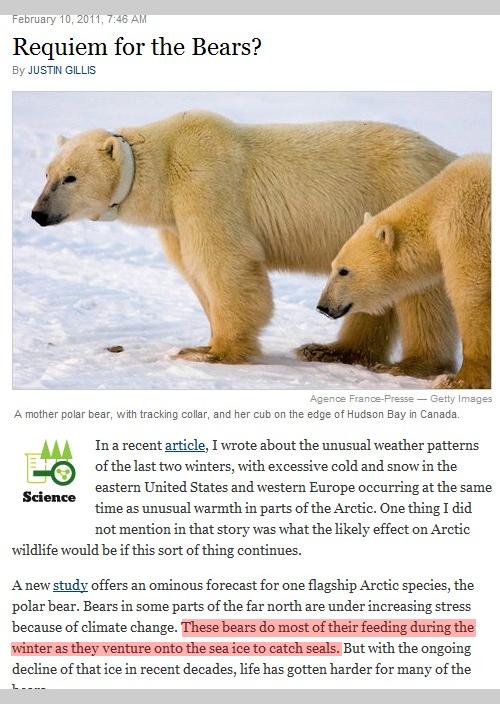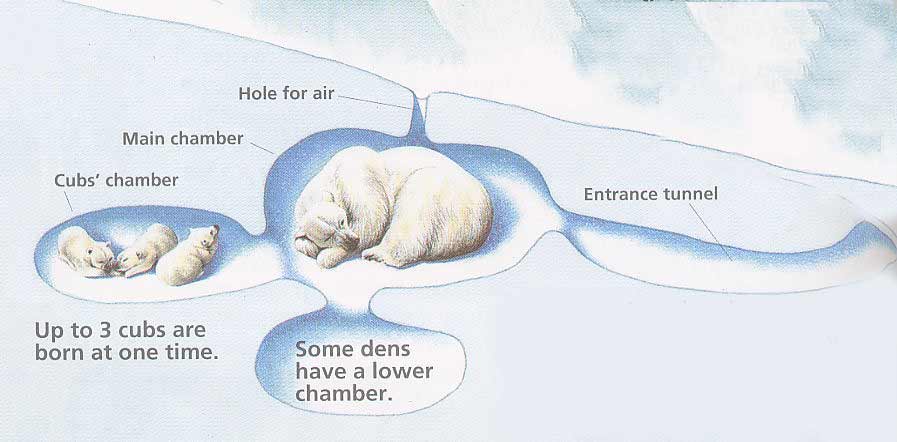Author expects ice-free winters in the Arctic.
Disrupting the Borg is expensive and time consuming!
Google Search
-
Recent Posts
- Analyzing The Western Water Crisis
- Gaslighting 1924
- “Why Do You Resist?”
- Climate Attribution Model
- Fact Checking NASA
- Fact Checking Grok
- Fact Checking The New York Times
- New Visitech Features
- Ice-Free Arctic By 2014
- Debt-Free US Treasury Forecast
- Analyzing Big City Crime (Part 2)
- Analyzing Big City Crime
- UK Migration Caused By Global Warming
- Climate Attribution In Greece
- “Brown: ’50 days to save world'”
- The Catastrophic Influence of Bovine Methane Emissions on Extraterrestrial Climate Patterns
- Posting On X
- Seventeen Years Of Fun
- The Importance Of Good Tools
- Temperature Shifts At Blue Hill, MA
- CO2²
- Time Of Observation Bias
- Climate Scamming For Profit
- Climate Scamming For Profit
- Back To The Future
Recent Comments
- conrad ziefle on Analyzing The Western Water Crisis
- Bob G on Analyzing The Western Water Crisis
- Bob G on Analyzing The Western Water Crisis
- Bob G on Analyzing The Western Water Crisis
- arn on Analyzing The Western Water Crisis
- Scott Allen on Analyzing The Western Water Crisis
- conrad ziefle on Analyzing The Western Water Crisis
- conrad ziefle on Analyzing The Western Water Crisis
- Bob G on Analyzing The Western Water Crisis
- Bob G on Analyzing The Western Water Crisis




Winter is the new summer.
They say the bears can’t find ice in the wintertime? Everything up there right now is frozen solid as a rock. What planet do they live on?
“Most polar bears remain active throughout the year. They have the ability to reduce their metabolic rate when food is scarce and adjust it again when food is abundant.
An example of this are the polar bears that come ashore after the ice melts in Hudson Bay each summer. These bears have no food source and enter a state scientists call walking hibernation. Polar bears in this state appear to maintain normal body temperature but are able to save energy by reducing their metabolic rate and recycling proteins.”
Source: http://www.polarbearsinternational.org/polar-bears/bear-essentials-polar-style/habits-and-behavior/hibernating-and-denning
Ok lets just be brutally honest here. What if polar bears became extinct? What would happen? Would we be overrun by seals?
Seriously, who gives a shit other than yeah yeah we have the power to save the big cute cuddly fish breath bears, but other than the feel good factor, this planet wouldn’t miss a beat if these polly berras became extinct, would it?
We do not have the power to save these bears as they are not endangered. The assumption that they would go extinct without lots of ice is false.
Polar bear females prefer the ice as it’s a good place to den and have cubs without predators going after the cubs and, for both sexes, the hunting is good and with little competition. Lots of polar bears spend most of their time on land hunting walrus who haul out on rocky beaches. No ice there.
Ignorance may be bliss, but lazy ignorance (particularly in those who try to influence the public) should draw criminal charges.
Polar bears do just fine during warmer times. In fact, the population tends to INCREASE during warm periods; a few colonies have become overpopulated. During cold periods life is harsher and populations would suffer but, by taking to the ice, survival of young is better.
The hardest part for Poley Bears is when their igloo melts because of my SUV. I figure they can build another one, so I’m buying a 5th wheel.
After seeing the above picture it looks like the only problem the polar bears have are THE SCIENTISTS.
I didn’t think polar bears hibernated.
Hate to disagree, by, polar bears do not really hibernate during the winter. The females with cubs will “den,” but most males stay awake and active.
So the females do most of their hunting during the winter while they are asleep in their den.
It’s called multitasking.
bears are too large to hibernate. Only mammals with a certain mass-volume can regulate metabolism to truly hibernate.
ralph, now that was funny!
“Ignorance IS bliss.”
This should be replaced with “Ignorance should be (very) painful.”
Purposeful ignorance (a la Al Gore never debating the science) should draw criminal charges. Al Gore’s NEW PRISON name would be “ALICIA GORE.”
Hibernation would be nice for me.
This always happens in populations:
Boom-bust cycles. By some reckoning, bear populations are up threefold from the last decades since “endangerment” was proclaimed. In the 70s, for example, deer populations were healthy and well-balanced in Pennsylvania and other states. Since hunters have become an endangered species, today deer populations face boom-bust cycles, bearing catastrophic losses en masse due to starvation when the food sources are strained. Indeed, in PA and other states, hay has to be trucked in some years to stave off mass starvation, a very cruel fate, indeed (not to mention the concomitant tree devastation). Viruses and parasitic diseases flourish at these times, causing even higher losses.
The triplet phenomenon in bears, I am guessing, may be a harbinger for a similar fate. A temporary loss of prey for the bears, caused by bear overpopulation, or brought about by a temporary climatic unfavorable situation in the Arctic, will inevitably cause a starvation scenario and a mass die-off.
When that happens (and I have no idea how much bear population the habitats can support), what will be blamed? WAG—human “destruction” of the environment. Global warming, habitat destruction, etc., ad nauseam.
A few dry facts about the polar bear.
These animals are called Nanoq in Eskimo language. The female weigh about 250kg and the male about 500kg, but can grow to 750kg. Their average lifespan is 16 years, but they can be up to 30 years of age. The females rests in a borrow during winter time if they are with cups, but they do not hibernate. The males never go under ground and keeps hunting during the winter. Their food consists of seals coming up for air through holes in the ice or sun bade on ice or land. They also eat sea birds, lonely mosques bison going walkabout, stranded whales and in the summer time berries and plants. They can swim up to 40 nautical miles at a cruise speed of 5 knots. Their only enemy is human beings.
Steve, stevengoddard says:
February 11, 2011 at 2:15 pm
So the females do most of their hunting during the winter while they are asleep in their den.
Steve.
I like your site and your contributions the climate issues, I follow your articles with interest and agreement. I am a AGW skeptic but I’m also a realist. sorry you got this one wrong, As a skeptic I’m painfully aware how the warmist distort the truth and I will always try to find the facts good or bad.
Polar bears do not over winter in dens like brown and black bears.
Only pregnant females enter dens to give birth where they stay until the cubs are big enough to trek.
Most polar bears remain active throughout the year. They have the ability to reduce their metabolic rate when food is scarce and adjust it again when food is abundant.
Denning.
Pregnant polar bears den in the fall after feeding heavily in August and September. They choose den sites in snowdrifts along mountain slopes or hills near sea ice or in banks of snow on the frozen sea. Along Western Hudson Bay mother bears begin by denning in earthen dens along river banks and later move to snow dens.
See the Polar bear blogs to find Polar bears throughout the summer and fall catching sleeping seals (yum yum) on tidal/mud flats when the tide goes out. I wasnt aware of this till reading about it but it makes sense, a Polar bear is an opportunist and will never turn down a juicy seal.
Keep up the good work.
Regards Ted.
So the females do most of their hunting during the soon to be ice-free minus 30C winter while they are asleep in the their dens.
People often forget Polar Bears are classified as Marine Mammals, because of their swimming ability and physical adaptation to the water. (They can close their nostrils underwater and have quite good underwater vision among other evolved attributes.) If the ice recedes they may have to snatch seals off the beach like the Orcas do. (And which bears are much more suited for.)
Polar bears ear mainly seal meat caught out on the ice. But what happened during the Medieval Warm period? It was warmer then than now, Vikings colonized Greenland where now it is thick ice, so it is odds on that Arctic winters then were ice free, or at least ice free near the coasts. Where did the bears get their food then? Probably from seal colonies on shore. Seals would have had the same problem because they like to pup on the ice but no ice means they have to pup on land. Remember also polar bears are great swimmers and 60 miles to swim is a stroll for one of them.
In Northern California we have large colonies of seals, sea lions, and elephant seals that pup on our beaches. When we had wolves and bears they must have had a feast. I can’t imaginge polar bears being less capable.